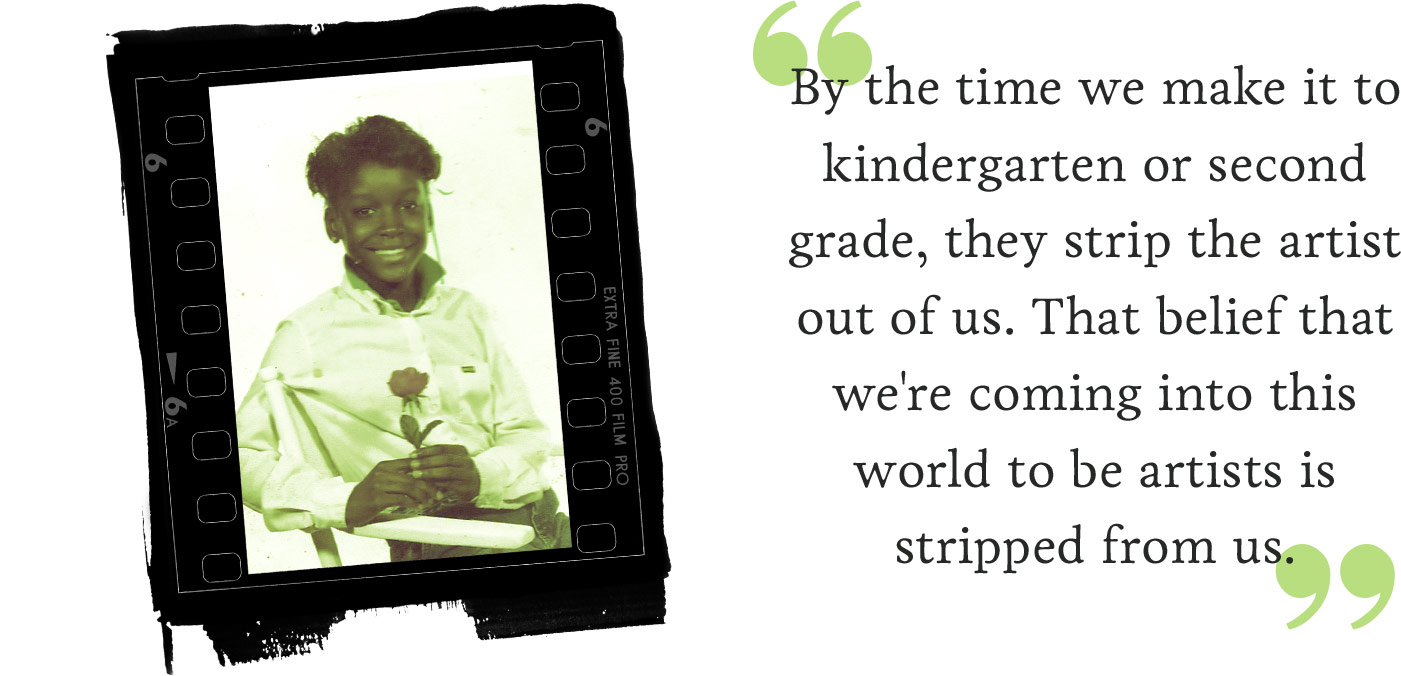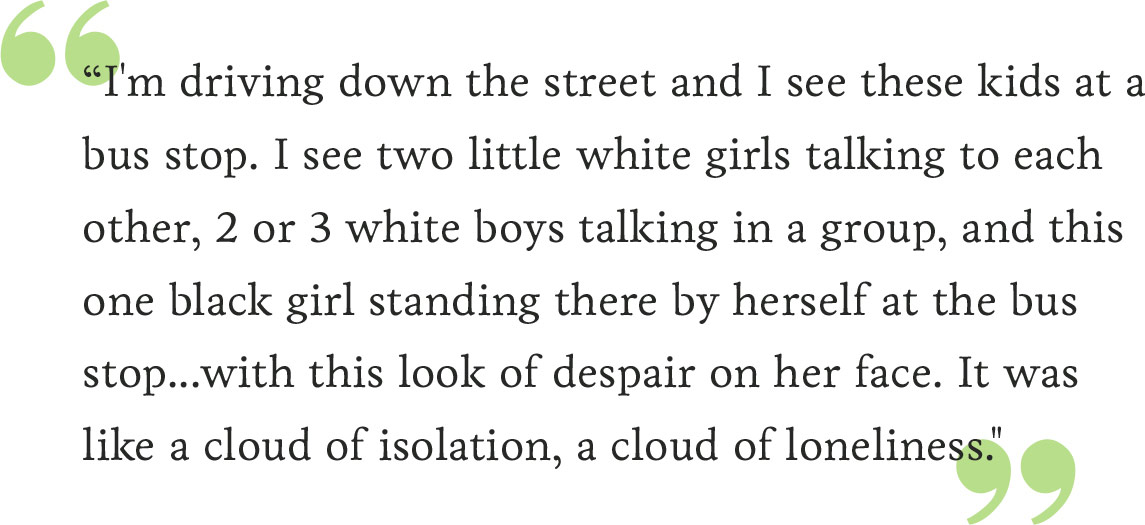
A conversation with Artist/Activist Dr. Nichelle Rivers
The deep empathy Nichelle expresses for her subjects stems from her own life-long struggle to move out of constricting norms. Growing up in a racially diverse, upscale Memphis suburb affectionately dubbed “Twinkle Town,” Nichelle describes a loving, tight-knit extended family, emphasizing the importance her parents placed on her academic success. Nichelle was a bright student who discovered her artistic nature at a very young age. Citing Maya Angelou’s claim that we are all born artists, Nichelle points out that the school system often curtails creative growth:

Attending a middle school for performing arts, Nichelle was free to develop her inner artist. However, acknowledging her attraction to women was not a freedom she enjoyed as an adolescent living in the deep south of Memphis during the 1990s. In middle school, LGBTQ issues were simply not discussed. Entering a college preparatory high school, Nichelle struggled in silence to understand her sexuality. She dated boys and worried about looking feminine. This desire to fit in made her question her body identity. She held herself back athletically, fearing her naturally muscular body made her appear too masculine. A bright memory for her during this time is when her older sister decided to go to her senior prom wearing a tuxedo. So excited by the prospect, Nichelle insisted on joining her sister: “I felt so free, wearing that tuxedo, and I thought I looked so good. I was like, ‘yeah I look good!’” She remembers this moment as a chance to break out of heteronormative confinement and breathe freely. Perhaps the time and place in which she lived allowed her on this occasion to break out unnoticed. Her teachers or classmates never questioned why she wanted to wear the tuxedo in the first place.
While academic achievement was important to Nichelle, she never gave up her passion for art. She credits her art teacher for helping her to grow in this area:
“Mr. Hicks exposed us to everything that I would be exposed to in college, everything from print-making, etching, lithographs.”
Nichelle acknowledges the resources her Memphis school enjoyed. Her art program provided students with the most cutting-edge equipment and technology to support a high quality educational experience. Unfortunately, notes Nichelle, students who look like her and currently live on Long Island do not have the same opportunities. The suburban planning of people like Levitt institutionalized racist housing practices and thus ensured segregated school districts island wide. Just imagine the burdens placed on black children who are either trapped in schools without needed programs and services or isolated in communities where no one looks like them. Recalling a time she spotted a little black girl at the bus stop near her house in East Islip, which she points out is “pretty freaking white,” Nichelle drives home this point:




